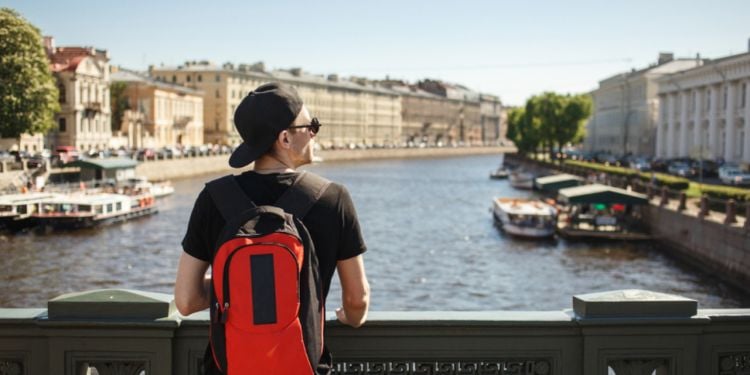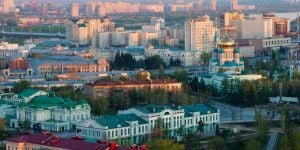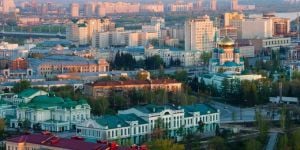
Russia has an international reputation which originates from the Soviet era. Due to modernisation, following the end of the USSR, the Russian population has managed to Westernise itself quite rapidly. In fact, the advent of technology, mass consumption, as well as female empowerment has enabled the country to develop into a very lively society over the years, although traditions are still part of Russians' everyday life. The country has a rich historical and cultural heritage which is cautiously preserved by its people.
Cliches
Russia has historically had certain stereotypical aspects assigned to it by foreigners. In fact, people tend to believe that most Russians are communist, only drink Vodka, eat spoonfuls of caviar and are bundled up all year round in fur coats with fur hats on their heads.
But in Russia, you do not throw your glass over your shoulder once it is empty and you do not kiss your host or hostess on the lips. This tradition is only reserved for special occasions. Hence, these perceptions are real to some extent.
The fact is that the Russian population has undergone a vast Westernisation process over the past couple of decades. As a consequence, more and more Russians are adopting Western norms, and prefer to drink wine instead of vodka and bring exotic fruits and chocolates to their host instead of caviar.
Family
Families are deemed to be sacred in Russia, although divorce is becoming more and more common. Russian women still get married at a quite young age and dedicate the rest of their lives to their children's education and their homes. Elderly people (especially women) often stay with their children and help with their grandchildren's education.
Moreover, Russians have a great sense of hospitality. They are very welcoming towards their friends and relatives, whether or not they are closely related. You are more likely to find several generations of the same famiyl living under the same roof in Russia than you might in other parts of Europe.
Tips
It is better to be aware of Russian customs and beliefs before travelling there. For instance, shaking hands, talking with someone or accepting a present from someone over a threshold is deemed to be a bad omen. Moreover, cleanliness is considered to be a sign of respect, so you will likely be expected to take off your shoes while entering a Russian house to put on slippers. Every Russian host has a spare pair of slippers to offer their visitors.
Also, consider buying a gift if you are invited over for lunch or dinner by a Russian family. If you prefer buying a flower bouquet, make sure to take an odd number of flowers as flowers in even numbers are used for funerals.
Do not be surprised if you are expected to make a short speech to thank your hosts after the meal. This will lead to a toast to cheer you. Russians love making long toasts at every possible occasion. They also enjoy exchanging anecdotes and jokes with their hosts.
Russian cuisine
Your expat experience will not be complete until you have tasted Russian cuisine. When it comes to drinks, Russia is not only famous for producing vodka, but also kvas, which is a slightly sparkling drink made of fermented rye bread.
When the weather is bitterly cold, Russians rely on black tea, to which they almost always add lemon.
For breakfast, you are very likely to have sandwiches, pancakes, omelettes, or porridge (kasha), all accompanied by tea or coffee in major Russian cities. Lunch, on the other hand, is more comforting and copious as it usually consists of a soup (almost every meal starts with a soup, including the famous borsch), fish or meat, salad and dessert. In the evening, expect a family dinner which will be quite similar to lunch, including a soup, a main course and dessert.
Most Russian families have a country house where they cultivate various vegetables. At the end of every summer, they prepare a stock of pickled vegetables which they will eat during winter.
Note that fish is often an important part Russian meals.
Significant days
December 31st - January 1st: New Year, the most important day in Russia; January 7th: Orthodox Christmas; January 13th-14th: Old New Year; January 25th: St. Tatiana's Day, Students Day; February 14th: Valentine's Day; February 23rd: Day of the Defender of the Motherland which became more widely known as men's Day; March 8th: International Women's Day, every man is expected to offer gifts and flowers to his wife, mother, daughter, sister, female colleagues and other women in his life; May 1st: Spring and Labour Day (International Workers' Solidarity Day); May 9th: Victory Day, second most important and celebrated day in all Russia, a military parade (in Moscow only) and a walk in remembrance of the millions of Russians who died in the Great Patriotic War (WWII) as well as many fireworks are organised in every city; June 12th: Russia Day (Feast of the adoption of the sovereignty of the Russian Federation); November 4th: Russia National Unity Day; last Sunday of November: Mother's Day; December 12th: Constitution Day. Every city has a dedicated day to celebrate its creation and many events are organised on that day.
We do our best to provide accurate and up to date information. However, if you have noticed any inaccuracies in this article, please let us know in the comments section below.






Comments